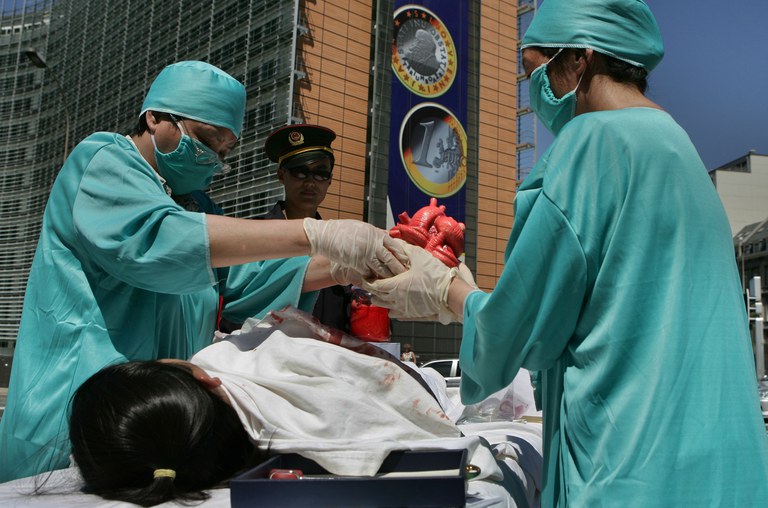China’s new rules not likely to stop illegal organ trade
China has updated its regulations against illegal organ transplants. However, members of the political and financial elite still manage to circumvent them in military hospitals that now perform half of the country's transplants.
Beijing (AsiaNews) – The new rules on organ transplants made public on 14 December and signed by Chinese Premier Li Qiang increase penalties for "malpractice" and tighten requirements for medical establishments that perform transplants.
The regulations, which came into effect yesterday, are the latest in a series of measures designed to crack down on illegal organ trafficking.
They include a monitoring system announced in 2014 that was supposed to prevent "private" allocation of organs or the use of organs from executed prisoners without their consent.
Since 1 January 2015, only voluntary public donations or organs from living relatives are legally allowed for transplants, but demand for organs in China continues to be very high.
A doctor from mainland China, currently practising in North America, said that, unlike most countries, half of all organ transplants in China are performed at military hospitals.
“We know that anyone supervising [transplants] at provincial or municipal level, or from the Red Cross, will stand aside once the military intervenes," said Dr Yang, a pseudonym used for fear of reprisals.
“So where do the military get their organs from? Just how transparent can this be?" Yang wonders. "It is a service specially provided to the [party elite]."
The doctor said that he witnessed the process by which high-ranking people in China and paying clients from abroad procure organs for transplantation.
“A senior official from Kazakhstan wanted a kidney transplant at the People's Liberation Army General Hospital," he said. "Within a month, a kidney transplant had been successfully performed, then he went back to Kazakhstan.”
China’s former organ transplant chief Jiefu Huang is cited in the UK-based medical journal The Lancet in 2011 as saying that about 65 per cent of transplants in China use organs from deceased donors, more than 90 per cent of whom were executed prisoners.
A 2022 study in the American Journal of Transplantation found evidence in 71 cases of “executions by organ removal” from prisoners, noting that “the removal of the heart during organ procurement must have been the proximate cause of the donor’s death.”
China is one of the world's leading countries for death sentences, but the exact number of executions is a state secret guarded by the ruling Communist Party of China.
Jiefu publicly admitted that organs transplanted in China still come mostly from death row prisoners, although this practice was banned after the Human Organ Donation Management Centre was set up in 2012.
Torsten Trey, founder and executive director of Doctors Against Forced Organ Harvesting, said the latest rules were unlikely to do much to stop illegal organ trade in China.
“The new regulations do not address the issue of transparent access to organ donors," Trey said. “Simply enacting new regulations without a system of verifiability for its enforcement ... really doesn't amount to a whole lot.”
Instead, he calls for a system based on World Health Organisation guidelines that insist on traceability of individual organs through a transparent donation process that is open to scrutiny, including instant access for inspection teams to carry out spot checks.
13/05/2024 14:28







.png)










